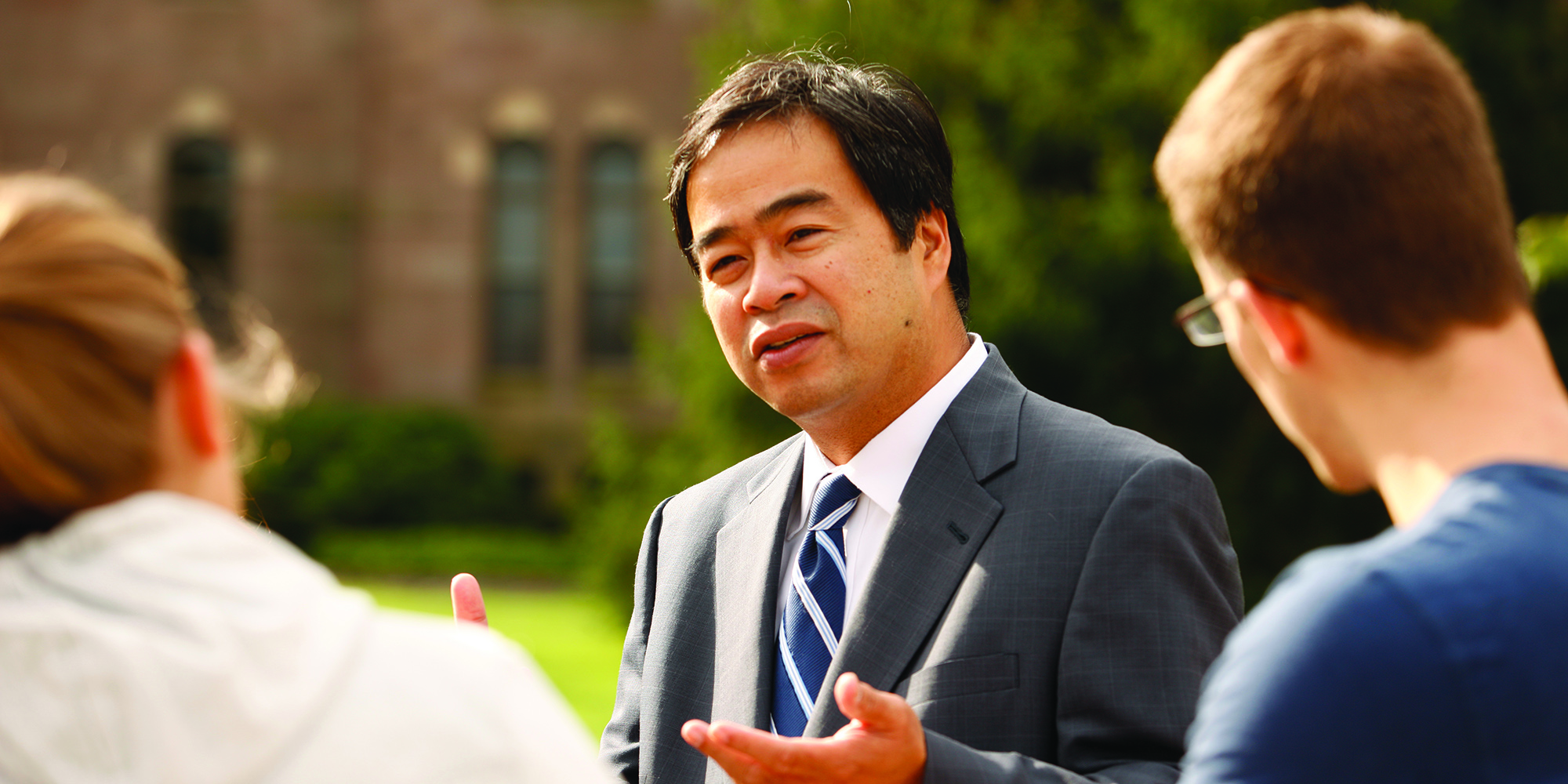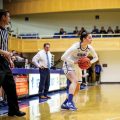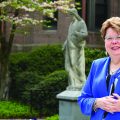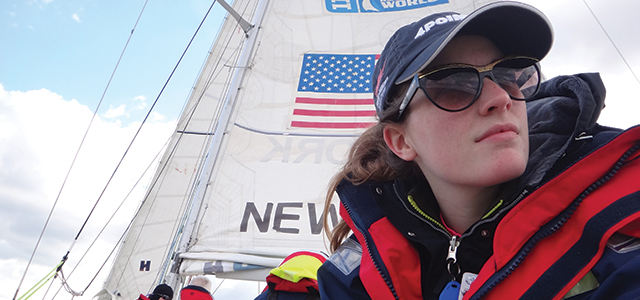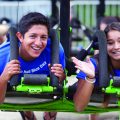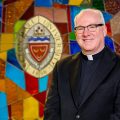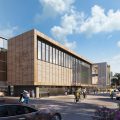“Faith and reason are like two wings on which the human spirit rises to the contemplation of truth; and God has placed in the human heart the desire to know the truth — in a word, to know himself — so that by knowing and loving God, men and women can come to the fullness of the truth about themselves.” With these words, Pope Saint John Paul II begins the encyclical Fides et Ratio. Some 12 years in the making, it is the first encyclical on the relationship between faith and reason since Pope Leo XIII issued Aeterni Patris in 1879.
Now, more than ever, the world needs people who can view the complexities of modern science through the framework of faith and reason. Our science curriculum teaches students more than how the world around them is formed and changed. They learn how to think critically about moral and ethical issues. Seton Hall is committed to a scientific education that promotes originality, creativity and invention — three characteristics that the Pontifical Academy of Sciences in Rome views as important to any academic pursuit.
This approach to science instruction and research at Seton Hall is nothing new. In fact, it has been a cornerstone of our academic experience for more than 150 years. The University’s first science courses were offered as early as the 1850s, and our first doctoral program was approved in 1964 in the field of chemistry.
In recent years, our science curriculum has continued to grow, and with the advent of our new medical school, future Setonians will take advantage of even greater learning and research opportunities.
For some students, introductory-level courses mark the beginning of a lifelong commitment to advancing the frontiers of scientific knowledge. Even students who do not pursue upper-level courses gain analytic skills that prove useful long after graduation — every time they weigh a financial decision, read the ingredients on a food container, or consider the energy policy of a political candidate.
Students who decide to make science their life’s calling find an education that exceeds their expectations and fosters in them a servant leader’s desire to advance the cause of humanity. From their first days on campus, freshmen are able to conduct research in a collaborative environment that unites the efforts of faculty members, graduate students and undergraduates. Very few universities can offer these opportunities to undergraduate students, and fewer still exhibit their students’ original scientific research in forums like the annual Petersheim Academic Exposition.
For two decades, the Petersheim Exposition has allowed our students to take ownership of their learning in a powerful way. By conducting and presenting their own original research, students address some of the most vital scientific issues of our time. The work they do to create new knowledge — and to share it with their mentors and peers — reflects a deep commitment to academic excellence and the fulfillment of an unparalleled learning opportunity that simply cannot be replicated in a classroom.
Once in the classroom, however, they are mentored by faculty members who are at the forefront of their fields. In fact, Seton Hall is among a handful of universities where the most senior professors instruct introductory-level courses — particularly in traditional science departments. They include Sulie Chang, who has received numerous National Institutes of Health grants; Allan Blake, a University Teacher of the Year; and
Wyatt Murphy, who received the Northern New Jersey Excellence in Education Award from the American Chemical Society.
Their success in continuing to offer top-notch instruction hinges on the quality of the learning environment, which we routinely upgrade to keep pace with the latest advances of modern science. Today, all of our students use tools such as magnetic resonance spectrometers, mass spectrometer-based separation instruments and next-generation sequencing facilities. Currently, the general chemistry laboratories are being upgraded to include Vernier computer-controlled instruments.
Because science instruction at Seton Hall functions within the context of a liberal arts education, our students’ academic experience includes a strong grounding in the intellectual tradition of humanities and the arts. This broad exposure gives Pirates an advantage over students from other institutions that offer more technically focused educations. Our programs emphasize crossing disciplinary boundaries by offering dual degrees in areas such as biology/pre-med or pre-dental, social and behavioral sciences/occupational therapy, chemistry/nursing as well as physics/engineering.
Ultimately, our students acquire leading-edge skills and knowledge that make them highly desirable candidates for graduate schools or positions at some of the numerous science- and technology-related companies based in New Jersey and beyond. Because many of our students acquire internship experience as part of their education, they arrive ready to jump into their professional careers with both feet, well-versed in the tools and techniques that make them strong participants in the global scientific community.

